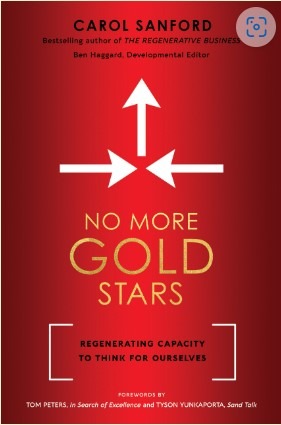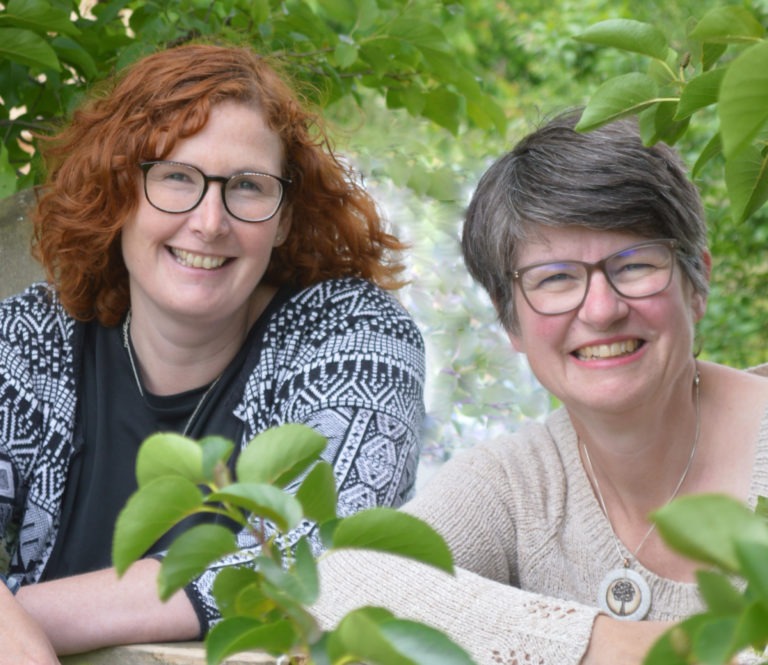
Rooted Leadership talk at Disrupt HR
Want to hear regenerative leadership explained in 5 minutes? Here’s a video of me speaking at Disrupt HR event in Nottingham. If you’d like to
The IPPC report ‘Climate Change 2022: Impacts, Adaptation and Vulnerability makes for somber reading, and the authors stressed that the solutions are as much political and social as scientific. An accompanying document states:
“Targeting a climate resilient, sustainable world involves fundamental changes to how society functions, including changes to underlying values, world-views, ideologies, social structures, political and economic systems, and power relationships.”
But we’re not starting from zero. People have been working on those fundamental changes for decades (indeed centuries/millennia) and those solutions that are nature-inspired lead the way in terms of proving their success. They are based on the 3.8 billion-years of evolutionary success of our planetary system.
What do I mean by nature-inspired? Solutions inspired by nature bring to light the underlying principles that make nature healthy, effective and resilient and learn from them. This is not simply about employing natural solutions (like planting tress or restoring peatlands), but learning from the ‘rules’ that nature uses for life, such as efficient use of energy, using biological resources, recycling, using slow, incremental solutions, mutual co-operation, and building on strategies that work.
We can use nature-inspired solutions for agriculture (for example regenerative agriculture, no-dig systems, and land-based permaculture), but also for engineering and product design (check out biomimicry and asknature.org).
Nature-inspired solutions can also be expanded into the social sphere, I’d recommend reading Creating Regenerative Cultures by Daniel Christian Wahl, and for economics, with Kate Raworth’s Doughnut Economics an inspiring solutions-orientated read.
Nature-inspired wellbeing harness the power of our minds and our senses to view ourselves and the world differently – to learn from and live by nature’s rules for life. This goes beyond the benefits of being in nature (which are many) into a more thoughtful and emotion-lead process for learning, exploration and self-discovery. People and Permaculture by Looby MacNamara was ground-breaking in the permaculture world, and Joanna Macy’s work, including The Work that Reconnects is vital for personal resilience in uncertain and scary times.
My own work, Think like a Tree (courses, workshops and books), builds on this and the world of many others, bringing together a set of natural principles and tools, anchored into a design cycle for practical change.
And, of course we must acknowledge, and learn from, the work and lives of indigenous peoples who live rooted in nature, with social structures that discourage over-exploitation of the other living beings with whom we share our planet. Practices designed around reciprocity and a richness of connection with other people and other living beings that many in western societies have long thrown off.
Businesses can learn from an ecosystem approach too – indeed with so many governments unwilling to make the necessary changes it is perhaps businesses that will lead the way. Looking at businesses as ecosystems of interconnected elements, rather than hierarchies (that we rarely see in nature) allows for increased creativity, problem-solving, adaptation in difficult times, resilience following shocks, along with improvements in employee (and customer) wellbeing. An ecosystem approach considers the whole picture (inside the business, as well as customers, stakeholders, local communities and more) and embraces complexity, change and not-knowing, but with a readiness to adapt and thrive whatever the circumstances. For further reading I’d recommend Teeming by Tamsin Woolley-Barker and Regenerative Leadership by Giles Hutchins and Laura Storm.
Designed for employees and businesses of all sizes, the Think like a Forest 2-day course on 5 and 6 May 2022 in south Derbyshire will guide you through tools and ideas for your own workplace ecosystem, building an action plan to benefit you, your organisation and the planet. The beautiful surroundings of the eco-roundhouse and woodland at community social enterprise Whistlewood Common, will encourage inspiration, ideas-sharing and creative-thinking, naturally. More details and to download an information booklet click here:
Of course there are many more nature-inspired approaches, books and resources and we’ll be sharing a rich bank of resources and tools during the course.
Which nature-inspired books, videos, tools and design approaches would you recommend?

Want to hear regenerative leadership explained in 5 minutes? Here’s a video of me speaking at Disrupt HR event in Nottingham. If you’d like to

In “No More Gold Stars,” Carol Sanford challenges conventional notions of achievement and success. Carol is a renowned business consultant and educator and what struck

This week has felt a little bit epic! I have found myself taking deep, exhaling breaths as I sit with the medley of feelings I have